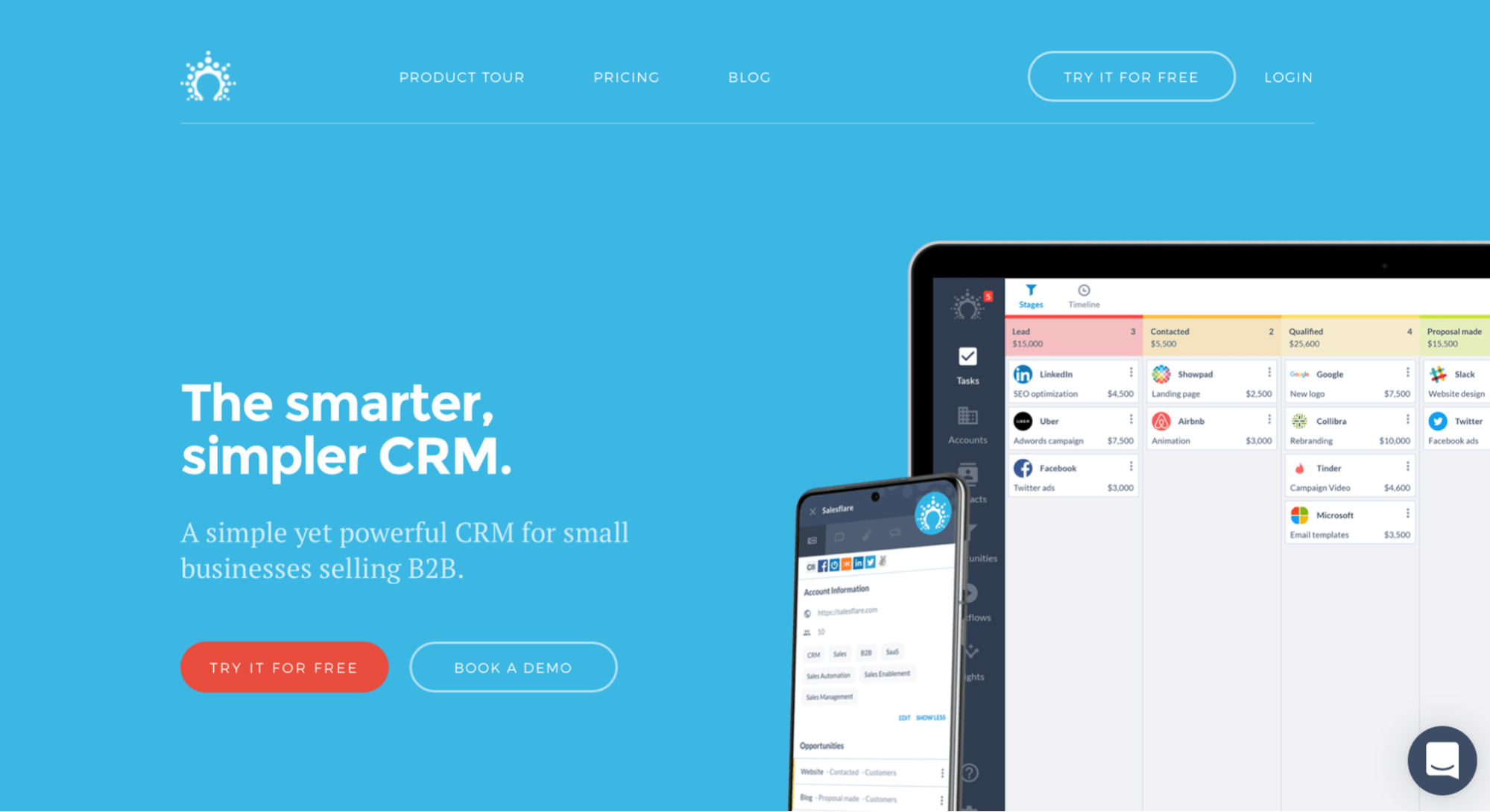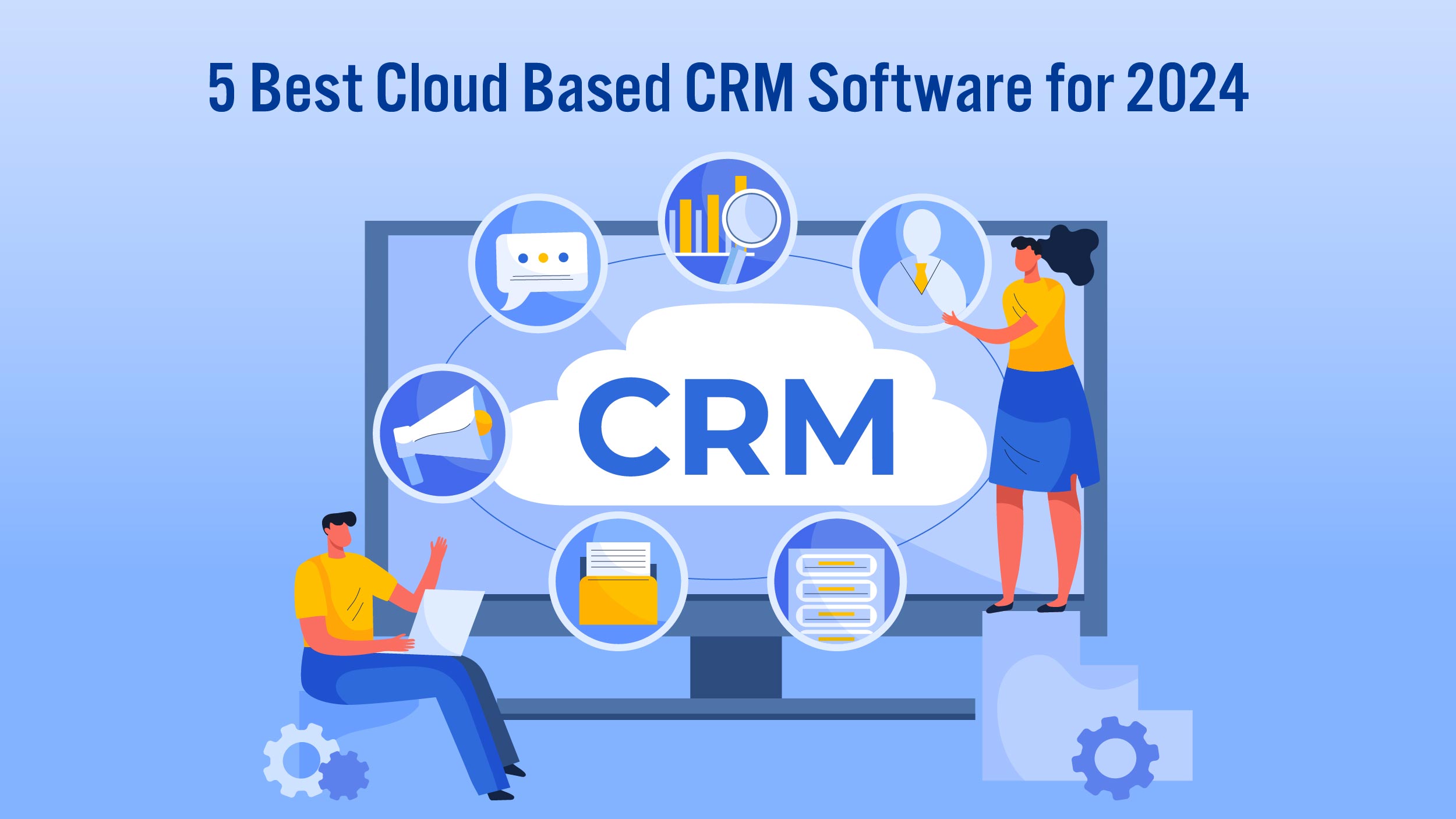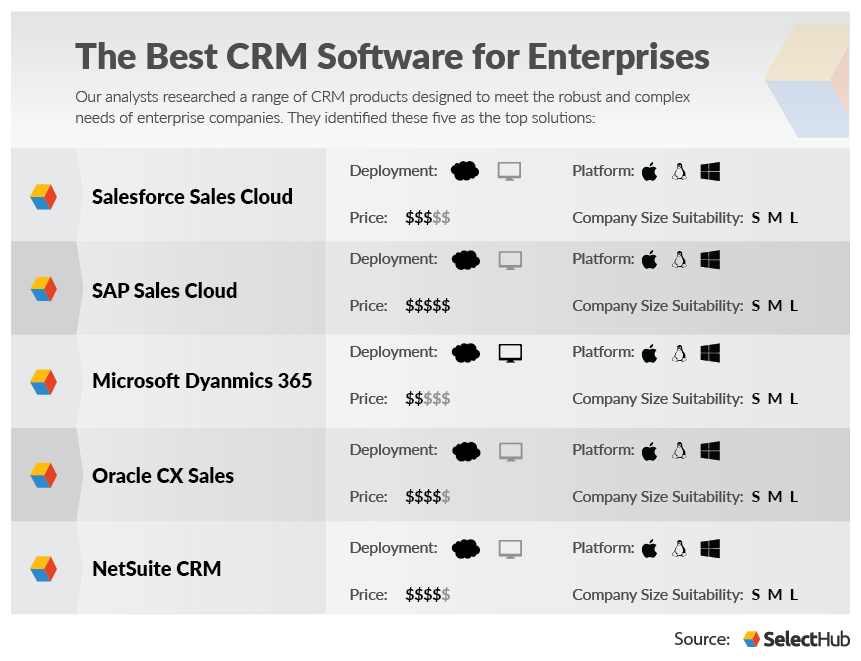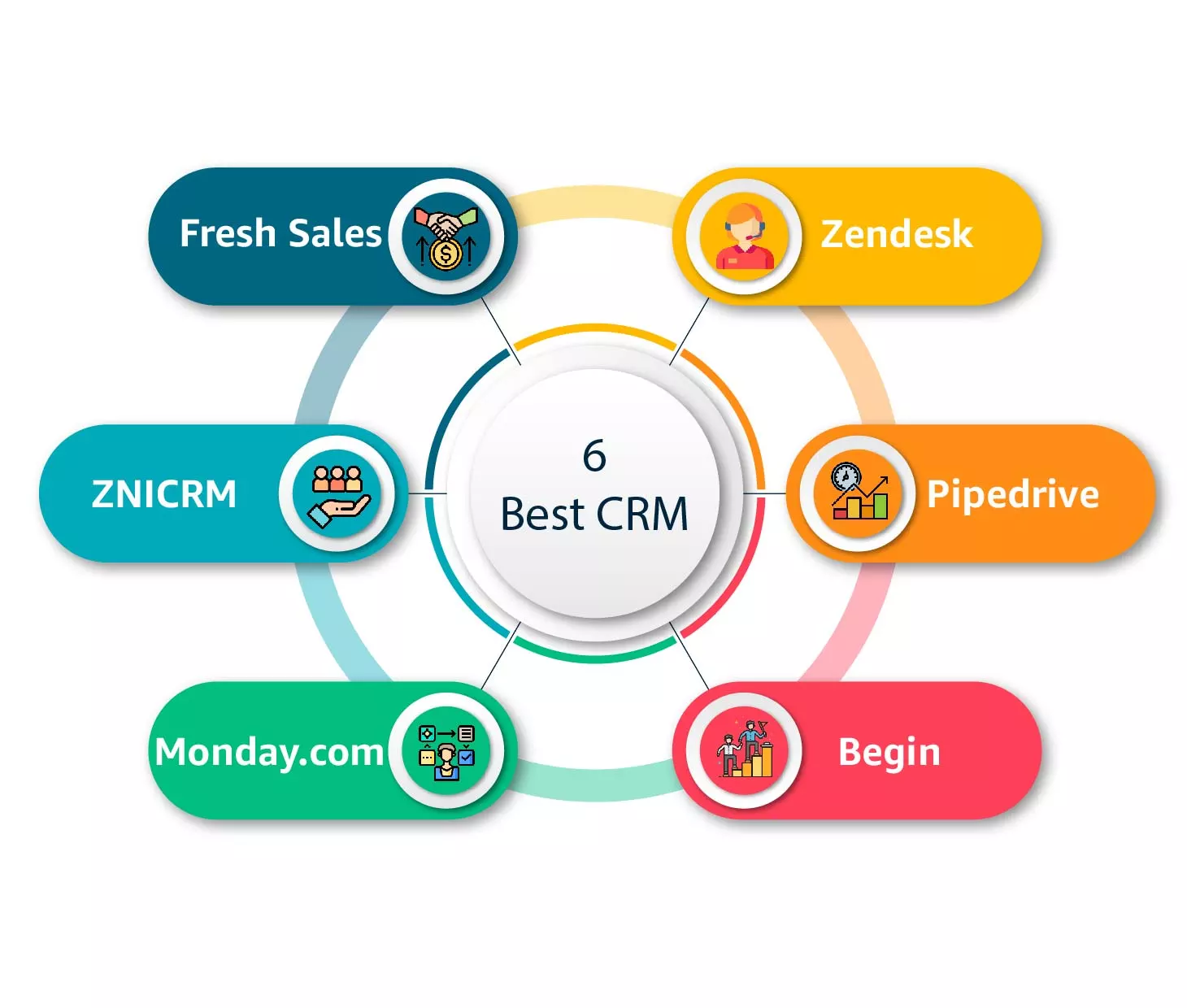AI-Powered CRM Software: Revolutionizing Customer Relations
AI-Powered CRM Software is transforming how businesses manage customer relationships. This technology leverages artificial intelligence to automate tasks, analyze data, and predict customer behavior, leading to improved efficiency, increased sales, and enhanced customer satisfaction. From predictive lead scoring to personalized customer service, AI-powered CRMs offer a range of capabilities that empower businesses to build stronger, more profitable relationships.
The integration of AI significantly differentiates modern CRMs from their traditional counterparts. Traditional systems primarily focus on data storage and retrieval, while AI-powered CRMs utilize machine learning and predictive analytics to provide actionable insights. This allows businesses to proactively address customer needs, anticipate potential problems, and personalize interactions at scale, ultimately fostering greater loyalty and advocacy.
Defining AI-Powered CRM Software
AI-powered CRM software represents a significant advancement in customer relationship management, leveraging artificial intelligence to automate tasks, analyze data, and improve overall efficiency and effectiveness. It moves beyond the capabilities of traditional CRM systems by incorporating machine learning and other AI technologies to provide deeper insights and more proactive customer engagement.
AI-powered CRM software offers a range of core functionalities designed to enhance customer interactions and business outcomes. These functionalities go beyond basic contact management and sales pipeline tracking, incorporating intelligent automation and predictive capabilities.
Core Functionalities of AI-Powered CRM Software
AI-powered CRM systems offer a suite of functionalities that streamline workflows and improve decision-making. These capabilities enhance the user experience and improve overall productivity. Key functionalities include automated lead qualification, personalized marketing campaigns, predictive sales forecasting, and proactive customer support through AI-powered chatbots. The integration of these functionalities allows for a more efficient and data-driven approach to customer relationship management.
Key Differences Between Traditional CRM and AI-Powered CRM
Traditional CRM systems primarily focus on data storage and basic reporting. They require significant manual input and offer limited predictive capabilities. In contrast, AI-powered CRM systems automate many manual tasks, offer predictive analytics, and provide deeper insights into customer behavior. The key difference lies in the level of automation and the use of AI to analyze data and make predictions, leading to more informed decisions and improved customer experiences. Traditional CRMs are essentially databases for customer information; AI-powered CRMs are intelligent systems that learn from the data and act upon it.
Examples of AI Functionalities Integrated into CRM Systems
Several AI functionalities are now commonly integrated into CRM systems to enhance their capabilities. Predictive analytics uses historical data to forecast future trends, such as sales revenue or customer churn. Lead scoring automatically prioritizes leads based on their likelihood of conversion. Chatbot integration provides instant customer support and answers common questions, freeing up human agents to focus on more complex issues. Sentiment analysis can gauge customer opinions from various sources, like social media and surveys, allowing for more proactive customer service and product development. These functionalities allow for a more efficient and data-driven approach to customer relationship management.
Comparison of Leading AI-Powered CRM Solutions
The following table compares three leading AI-powered CRM solutions based on their features and pricing. Note that pricing can vary significantly based on the number of users, features selected, and other factors. It’s crucial to consult the vendor directly for the most up-to-date and accurate pricing information.
| Feature | Salesforce Einstein | Microsoft Dynamics 365 AI | HubSpot CRM with AI features |
|---|---|---|---|
| Predictive Lead Scoring | Yes | Yes | Yes |
| AI-powered Chatbots | Yes (through integrations) | Yes | Yes |
| Sales Forecasting | Yes | Yes | Yes |
| Customer Segmentation | Yes | Yes | Yes |
| Pricing | Variable, starts at ~$25/user/month | Variable, starts at ~$65/user/month | Freemium model, paid plans start at ~$450/month |
Benefits and Use Cases
AI-powered CRM software offers a significant leap forward in sales and customer service efficiency, providing businesses with powerful tools to enhance operations and boost bottom lines. By leveraging artificial intelligence, these systems automate tasks, analyze data, and provide valuable insights that drive better decision-making across the organization. This leads to improved customer relationships, increased sales conversions, and ultimately, greater profitability.
Advantages for Sales Teams
AI-powered CRMs significantly enhance sales team performance through several key functionalities. Automated lead scoring, for example, prioritizes high-potential leads, allowing sales representatives to focus their efforts on the most promising prospects. Predictive analytics identify potential churn and offer insights into optimal sales strategies, enabling proactive interventions to prevent customer loss and increase sales closure rates. Intelligent lead routing ensures that leads are assigned to the most appropriate sales representative based on skills, territory, and other relevant factors. This optimized workflow leads to higher conversion rates and improved sales team productivity. Furthermore, AI-powered chatbots can handle initial customer interactions, qualifying leads and gathering necessary information before passing them to human representatives, freeing up valuable sales time.
Improved Customer Service and Support
AI significantly enhances customer service by providing instant support and personalized interactions. AI-powered chatbots offer 24/7 availability, answering common questions and resolving simple issues promptly. This reduces wait times and improves customer satisfaction. Sentiment analysis tools monitor customer feedback across various channels, identifying areas needing improvement and enabling proactive responses to address potential problems. AI-driven knowledge bases provide agents with quick access to relevant information, enabling faster and more accurate resolutions to customer issues. Personalized recommendations based on customer history and preferences enhance the customer experience, fostering loyalty and advocacy. The integration of AI into CRM systems facilitates seamless transitions between channels, ensuring a consistent and positive customer journey regardless of the interaction method.
Case Studies Demonstrating Positive Impact
One example is a large telecommunications company that implemented an AI-powered CRM to improve customer retention. By analyzing customer data, the AI identified patterns indicating potential churn. Proactive interventions, such as targeted offers and personalized communication, were implemented, resulting in a 15% reduction in customer churn within six months. Another example is a retail company that used AI-powered chatbots to handle a significant portion of customer inquiries. This resulted in a 20% reduction in call center costs and a significant improvement in customer satisfaction scores, due to faster response times and more efficient issue resolution. These case studies highlight the tangible benefits of integrating AI into CRM strategies.
Hypothetical Scenario: Solving a Business Challenge
Imagine a small e-commerce business struggling with high cart abandonment rates. By implementing an AI-powered CRM, they can analyze customer behavior to identify the reasons behind abandoned carts. The AI might reveal that a complicated checkout process or a lack of clear shipping information is causing customers to leave before completing their purchases. Armed with this information, the business can streamline the checkout process, improve website clarity, and potentially offer targeted promotions to incentivize completion of purchases. The AI-powered CRM can also personalize email campaigns to remind customers about abandoned carts and offer incentives to encourage them to return and complete their purchase. This targeted approach, driven by AI insights, can dramatically reduce cart abandonment and significantly increase sales revenue.
AI Features and Their Impact
AI is rapidly transforming CRM systems, moving beyond basic data management to offer predictive insights and automated processes. The integration of artificial intelligence enhances efficiency, improves customer relationships, and ultimately drives business growth. This section explores key AI features and their impact on modern CRM functionality.
Impactful AI Features in Modern CRM Systems
Several AI features significantly impact the effectiveness of modern CRM systems. These include predictive lead scoring, AI-powered chatbots, sentiment analysis, sales forecasting, and personalized recommendations. Predictive lead scoring, for example, uses machine learning algorithms to analyze various data points to identify leads most likely to convert, allowing sales teams to prioritize their efforts. AI-powered chatbots provide instant customer support, freeing up human agents to focus on more complex issues. Sentiment analysis gauges customer opinions from various sources, providing valuable feedback for product development and customer service improvements. Sales forecasting uses historical data and AI algorithms to predict future sales trends, aiding in resource allocation and strategic planning. Finally, personalized recommendations, based on customer behavior and preferences, enhance the customer experience and drive sales.
Comparison of AI-Driven Lead Scoring Methods
Different AI-driven lead scoring methods employ varying algorithms and data inputs to assess lead quality. For instance, a rule-based system might assign points based on pre-defined criteria like job title or company size. Conversely, a machine learning model can analyze a much broader range of data, including website activity, email engagement, and social media interactions, to generate a more nuanced and accurate lead score. While rule-based systems are simpler to implement, machine learning models generally provide more accurate and predictive lead scoring, leading to improved sales conversion rates. The choice between these methods depends on factors like data availability, technical expertise, and business needs. A company with limited data might find a rule-based system sufficient, whereas a larger enterprise with extensive data might benefit from a machine learning approach.
AI-Powered Chatbots and Customer Engagement
AI-powered chatbots significantly enhance customer engagement and lead nurturing by providing immediate responses to customer inquiries, guiding them through the sales process, and offering personalized support. These chatbots can handle a large volume of interactions simultaneously, improving response times and customer satisfaction. Furthermore, they can be programmed to collect valuable customer data, such as preferences and purchase history, which can then be used to personalize marketing efforts and improve lead nurturing strategies. For example, a chatbot can proactively engage website visitors, answer their questions, and guide them towards relevant resources, effectively qualifying leads and moving them through the sales funnel. This automation frees up human agents to focus on more complex or sensitive customer issues, improving overall efficiency and customer experience.
Risks and Challenges of AI-Driven CRM Implementation
Implementing AI-driven CRM systems presents several potential risks and challenges. Data privacy and security are paramount concerns, requiring robust security measures to protect sensitive customer information. The need for high-quality data is crucial for AI algorithms to function effectively; inaccurate or incomplete data can lead to flawed predictions and poor decision-making. Integration with existing systems can be complex and time-consuming, requiring careful planning and execution. Furthermore, the cost of implementation and maintenance can be significant, requiring a careful assessment of return on investment. Finally, the lack of skilled personnel to manage and maintain the AI systems can hinder successful implementation. Addressing these challenges requires careful planning, investment in data quality, robust security measures, and a commitment to ongoing training and development.
Implementation and Integration
Successfully implementing AI-powered CRM software requires a strategic approach that considers data integration, customization, and ongoing support. A phased rollout, coupled with thorough training, is key to maximizing user adoption and return on investment.
Implementing AI-powered CRM software involves several key steps, beginning with a thorough needs assessment and extending through ongoing monitoring and optimization. This process ensures the chosen software aligns with specific business objectives and integrates seamlessly with existing systems.
Implementation Steps
The implementation process typically unfolds in a series of well-defined stages. Each stage builds upon the previous one, creating a robust and effective system. Careful planning and execution at each step are critical for a smooth transition.
- Needs Assessment and Software Selection: This initial phase involves defining specific business requirements, identifying key performance indicators (KPIs), and evaluating different AI-powered CRM solutions based on features, scalability, and integration capabilities. A thorough analysis of existing CRM systems and data sources is essential.
- Data Migration and Integration: Migrating data from existing CRM systems and other relevant sources is a crucial step. Data cleansing and standardization are vital to ensure data accuracy and consistency, leading to more reliable AI insights. This often requires significant upfront effort but pays dividends in the long run.
- System Configuration and Customization: Once data is migrated, the system needs to be configured to meet specific business needs. This may involve customizing workflows, dashboards, and AI features to align with company processes and preferences. This stage is crucial for optimizing the system’s performance and user experience.
- User Training and Adoption: Comprehensive training for users is essential to ensure they can effectively utilize the new system’s features. This includes hands-on training, documentation, and ongoing support. Successful user adoption is key to the overall success of the implementation.
- Testing and Deployment: A thorough testing phase is crucial to identify and resolve any issues before full deployment. This may involve pilot testing with a smaller group of users before a wider rollout. Post-deployment monitoring and optimization are also critical for continuous improvement.
Data Integration and Quality
High-quality data is the lifeblood of any AI-powered system, and CRM is no exception. Inaccurate or incomplete data will lead to flawed AI predictions and ultimately hinder the system’s effectiveness. A robust data integration strategy ensures consistent and reliable data flow.
Data integration involves connecting the CRM system with other relevant business applications, such as marketing automation platforms, e-commerce systems, and customer support ticketing systems. This allows for a holistic view of the customer journey and facilitates more informed decision-making. Data quality, on the other hand, refers to the accuracy, completeness, consistency, and timeliness of the data. Regular data cleansing and validation are crucial to maintaining data quality. For example, integrating a CRM with a marketing automation platform allows for real-time updates on customer interactions, leading to more personalized marketing campaigns.
Successful CRM Integrations
Many successful CRM integrations exist, showcasing the power of connecting disparate systems. For example, integrating Salesforce with Marketo (a marketing automation platform) allows for seamless lead management and targeted marketing campaigns. Integrating a CRM with a customer support ticketing system provides a complete view of customer interactions, enabling more effective issue resolution. Similarly, connecting a CRM with an e-commerce platform provides insights into customer purchasing behavior, which can be used to personalize recommendations and improve customer retention. These integrations enable a 360-degree view of the customer, enhancing overall business efficiency and customer satisfaction.
Customizing AI-Powered CRM Features
AI-powered CRM systems offer a range of customizable features. These features can be tailored to meet specific business needs, enhancing the system’s effectiveness. For example, AI-powered sales forecasting models can be customized to reflect specific market trends or seasonal variations. Similarly, AI-driven customer segmentation can be refined to focus on specific customer attributes or behaviors. Customizing these features ensures the system is aligned with specific business goals and delivers the most relevant insights. This allows businesses to leverage the power of AI to address their unique challenges and opportunities.
Future Trends and Developments
The landscape of AI-powered CRM is rapidly evolving, driven by advancements in machine learning and the increasing availability of data. We can expect significant changes in the coming years, impacting how businesses interact with and understand their customers. These advancements will lead to more personalized, efficient, and predictive CRM systems.
The integration of AI into CRM is poised for exponential growth, transforming how businesses manage customer relationships. This section will explore emerging trends, predict the future role of AI in CRM, and examine the impact of advanced AI technologies.
Predictive Analytics and Customer Lifetime Value
AI-powered CRM systems are increasingly leveraging predictive analytics to forecast customer behavior and lifetime value. This involves using machine learning algorithms to analyze historical data, identifying patterns and predicting future actions such as churn risk, purchase likelihood, and optimal upselling opportunities. For example, a telecommunications company might use predictive analytics to identify customers likely to switch providers, allowing proactive intervention with targeted retention offers. This results in improved customer retention rates and increased revenue. The accuracy of these predictions will continue to improve as more data is collected and algorithms become more sophisticated.
Hyper-Personalization and Omnichannel Experiences
The future of AI-powered CRM hinges on delivering hyper-personalized experiences across all customer touchpoints. This involves using AI to analyze customer data from various sources – websites, social media, email interactions, and more – to create a unified customer profile. This comprehensive view allows for tailored messaging, product recommendations, and service offerings, enhancing customer satisfaction and loyalty. For instance, an e-commerce platform could use AI to recommend products based on a customer’s browsing history, purchase behavior, and even their social media activity, creating a truly personalized shopping experience.
Enhanced Customer Service with AI-Powered Chatbots and Virtual Assistants
AI-powered chatbots and virtual assistants are becoming increasingly sophisticated, capable of handling a wider range of customer inquiries and providing more human-like interactions. These tools can provide 24/7 support, freeing up human agents to focus on more complex issues. The integration of natural language processing (NLP) and machine learning allows these systems to understand and respond to customer queries in a natural and intuitive way. For example, a bank could deploy an AI-powered chatbot to answer frequently asked questions about account balances, transactions, and online banking features, improving customer service efficiency and reducing wait times.
The Rise of Explainable AI (XAI) in CRM
As AI becomes more deeply integrated into CRM, the need for transparency and explainability increases. Explainable AI (XAI) aims to make AI decision-making processes more understandable and interpretable. This is crucial for building trust and ensuring ethical considerations are addressed. For example, if an AI system predicts a high churn risk for a customer, XAI techniques can help explain the reasoning behind the prediction, allowing businesses to understand and address the underlying issues. This increased transparency fosters accountability and allows for better decision-making.
Projected Growth of the AI-Powered CRM Market
Visual Representation: Imagine a line graph charting the growth of the AI-powered CRM market over the next five years. The X-axis represents the years (Year 1, Year 2, Year 3, Year 4, Year 5), and the Y-axis represents market size (in billions of dollars). The line starts at a relatively low point in Year 1, representing the current market size. The line then steadily increases at an accelerating rate, showing exponential growth. By Year 5, the line reaches a significantly higher point, indicating a substantial increase in market size. The graph should be titled “Projected Growth of the AI-Powered CRM Market (2024-2028).” Specific numerical values could be added based on market research data (e.g., a projected growth from $X billion in 2024 to $Y billion in 2028, where Y is significantly larger than X). The graph visually communicates the significant anticipated expansion of the AI-powered CRM market. This growth reflects the increasing adoption of AI technologies by businesses seeking to improve customer relationship management and gain a competitive advantage.
Final Review
In conclusion, AI-powered CRM software presents a significant advancement in customer relationship management. By harnessing the power of artificial intelligence, businesses can streamline operations, improve customer experiences, and drive revenue growth. The ongoing evolution of AI technologies promises even greater capabilities in the future, further solidifying the role of AI-powered CRMs as a critical tool for success in today’s competitive landscape. Embracing this technology is no longer a luxury but a necessity for businesses seeking sustainable growth and market leadership.



